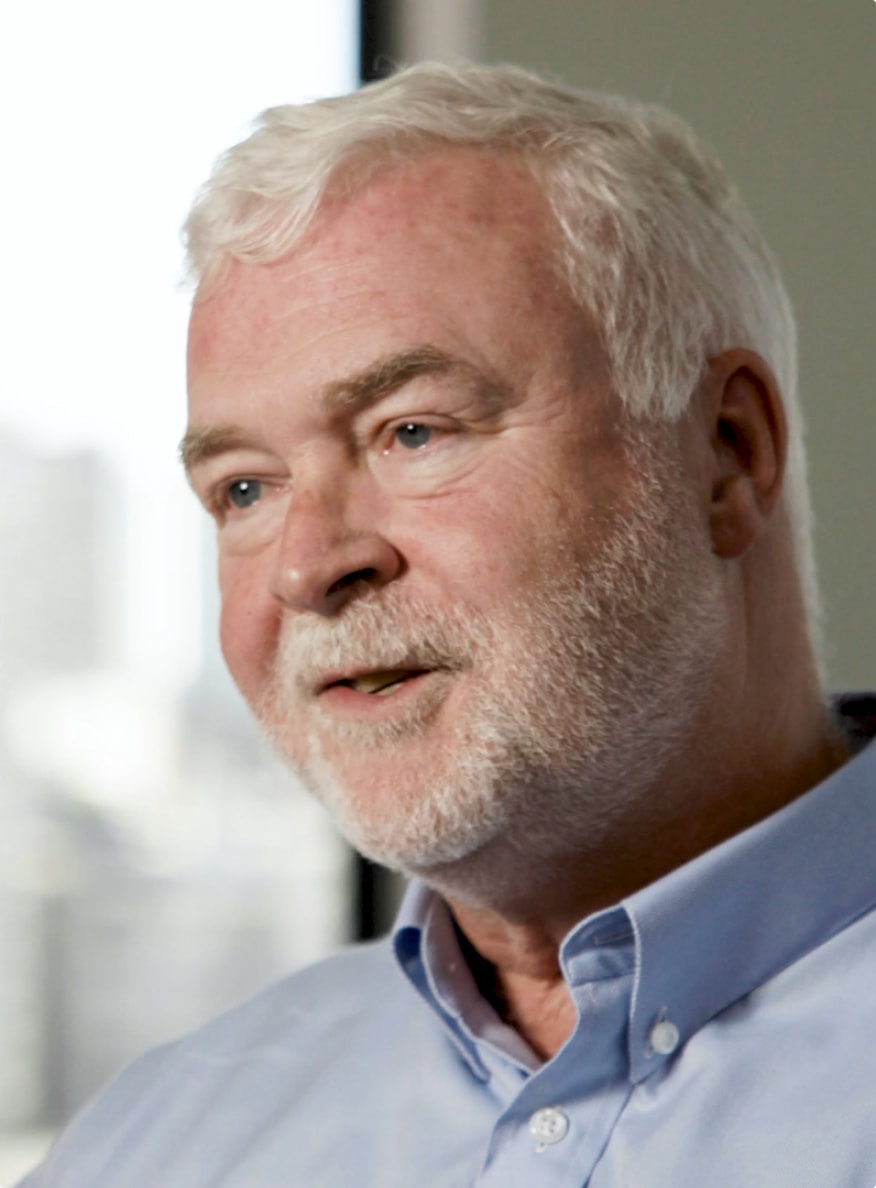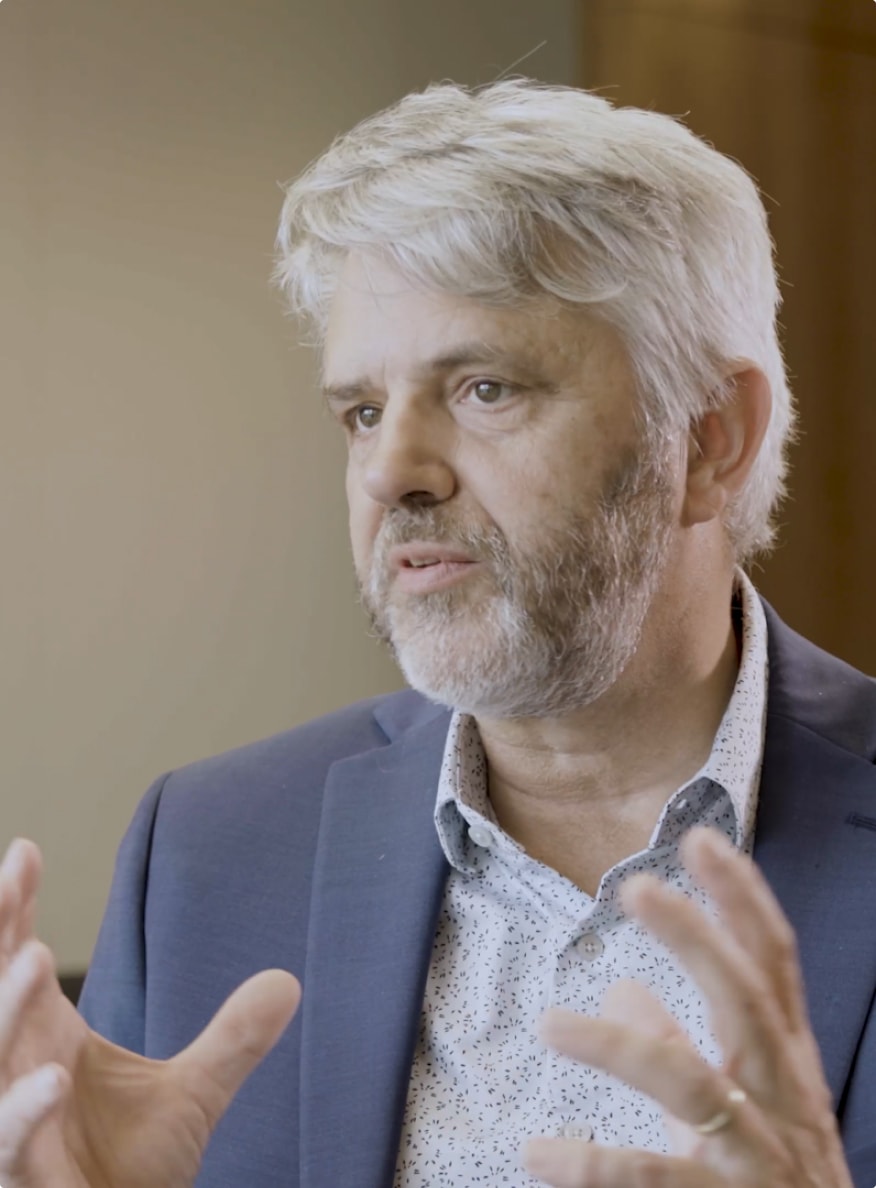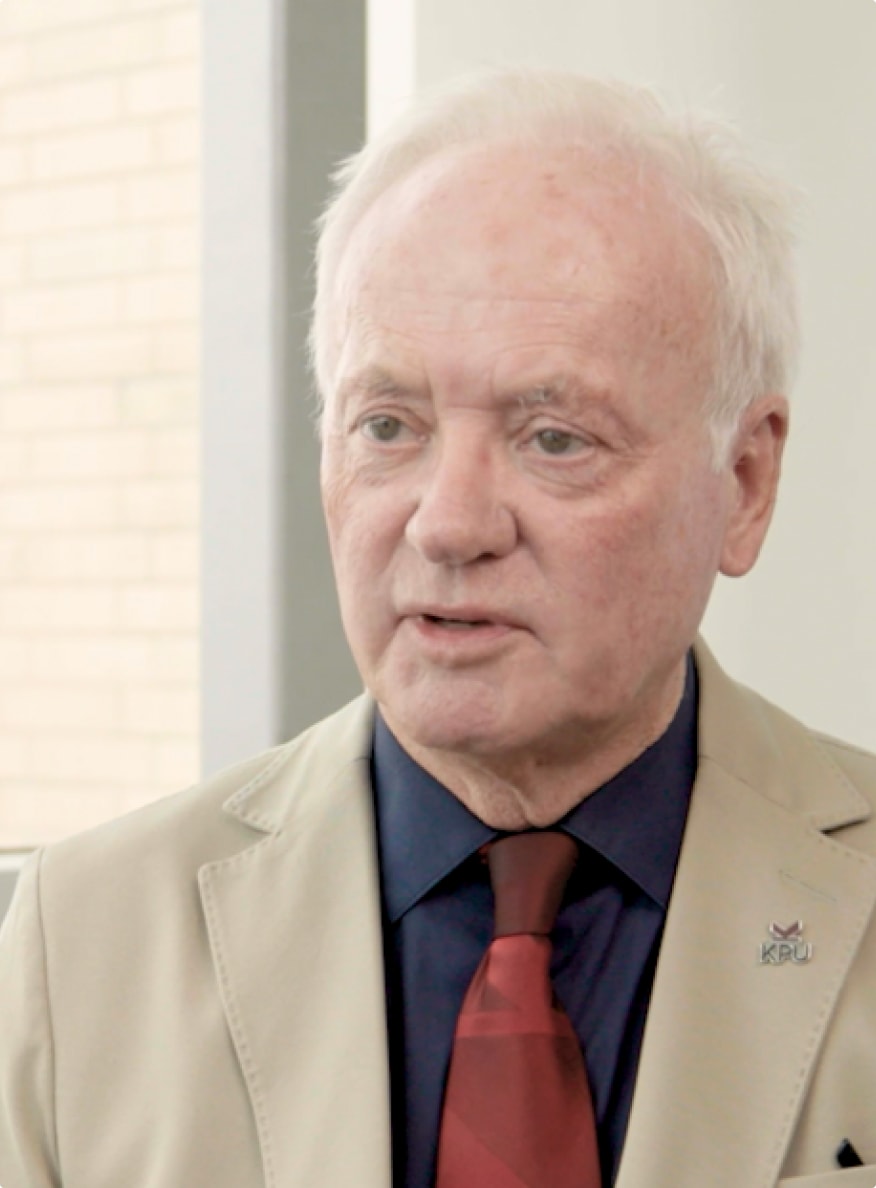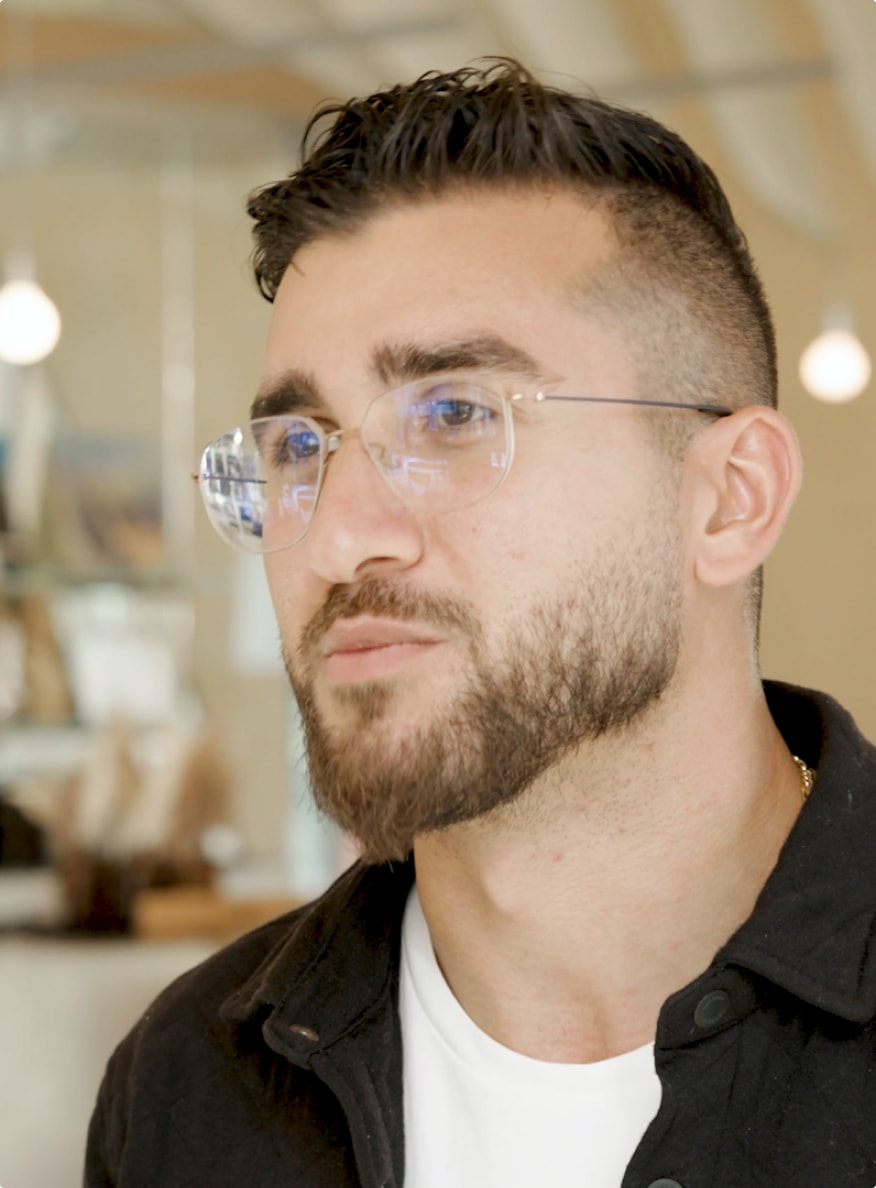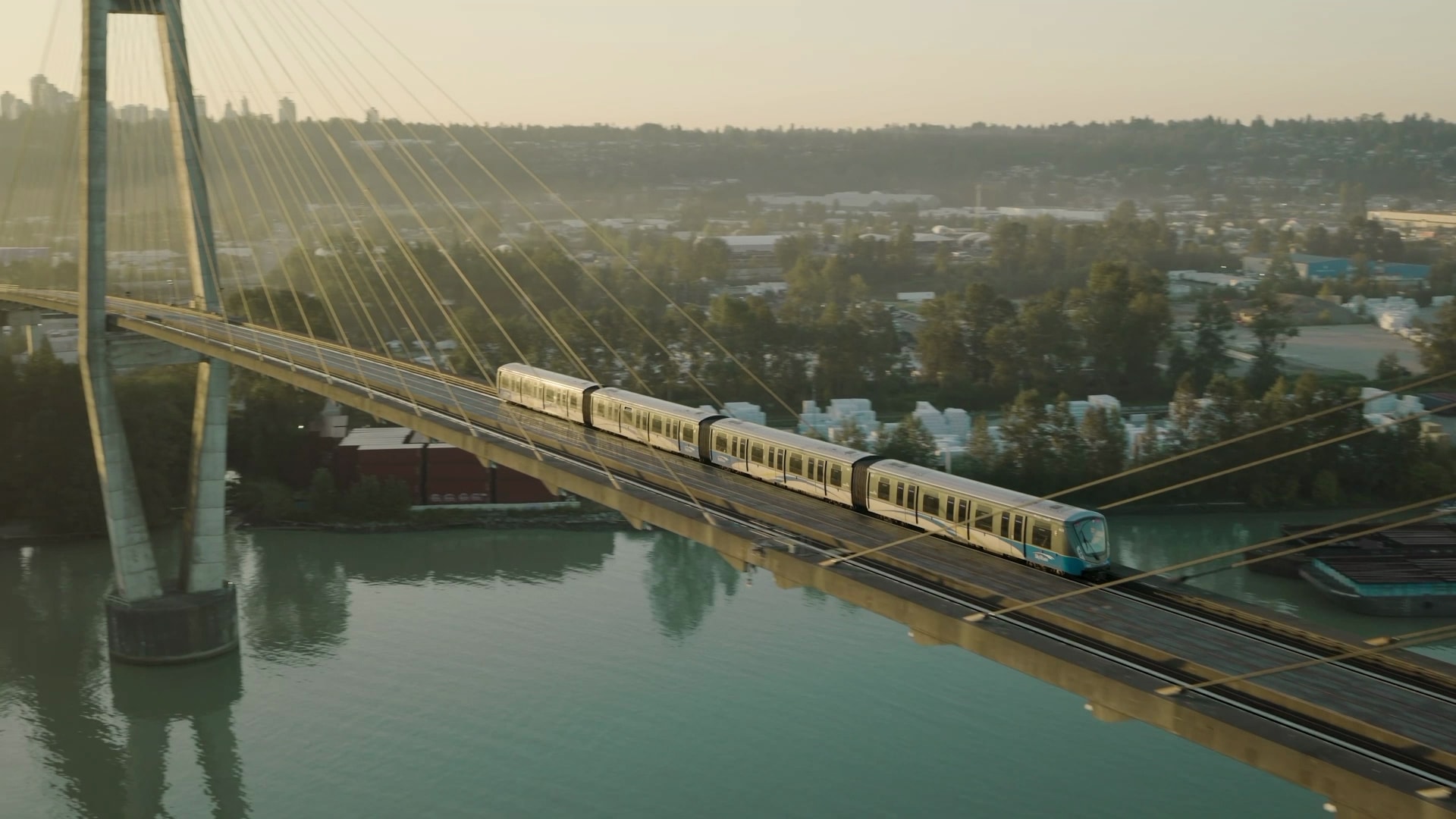Interview
In conversation with 5 Surrey’s 3.0 city builders.
In conversation with 5 Surrey’s 3.0 city builders.
Community
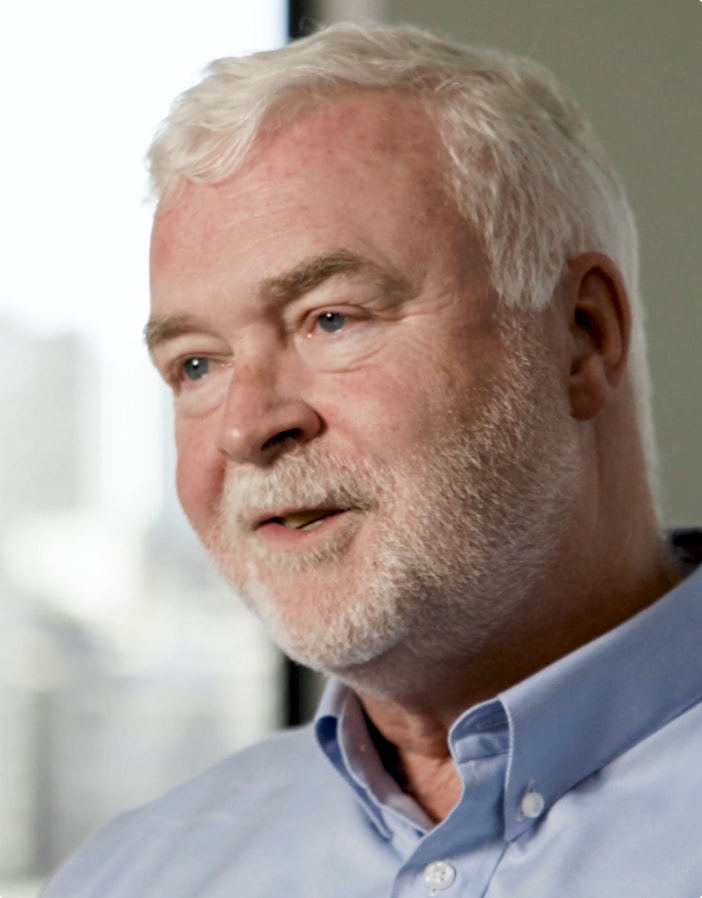
Michael Heeney
President & CEO, SCDC
Q: What was it that first drew you to architecture, design, and city building?
A: I always called myself the accidental architect, even though I've been doing it for a long, long time. I'm not one of these people that grew up playing with blocks. When I was in university, what I was really passionate about was theatre. I was doing a lot of theatre stuff. A friend of mine was applying to architecture school, and it seemed kind of interesting. You had to submit a portfolio. So I decided to submit a stage design I had done, and I got in.
Q: When did you first get involved in Surrey?
A: I got involved in Surrey in the mid-to-late 90s, there was a community group that wanted to build a theatre, and at that time Bing and I were working on the Chan Centre at UBC, so we were considered knowledgeable about theatres. They asked us to do a feasibility study for a new theatre for Surrey.
Q: During your time at Bing Thom Architects you worked on Central City Mall, how did that opportunity come together?
A: This is a big simplification but we thought it would be great if we could convince the provincial government to build a university in the City Centre. One thing led to another, and we were able to facilitate a deal between the province, the Ministry of Advanced Education and the City. About that time Surrey Place Mall was also for sale. With a university going in across the street, and ICBC was looking to invest in real estate, the provincial government asked ICBC to build the university. So that's how Central City started.
Q: What is your focus now, at Surrey City Development Corp?
A: What's been challenging for Surrey City Centre is that it's not concentrated enough. It has been spread out along transit. If you look at the office space that we've got so far, there is a building at Gateway, a building at Central, and two or three buildings down at King George. It's a 10-20 minute walk to get from one to the other. So you don't get all the benefits of clustering that you get in the downtown where you can go across the street, your lawyer is there, a couple buildings over and your accountant is there. We haven't got that concentration yet. So my particular interest is in office 'cause I'm trying to get some office space going. Centre Block will focus more on office space in Central Downtown.
Q: What does the City of Surrey look like in the next 20 years?
A: If you look forward, the city is probably going to be twice as big. What I’m really hoping is that we’ve found the right balance between commercial and residential activity. The city is growing so fast — that I'll be alive to experience it is super exciting.
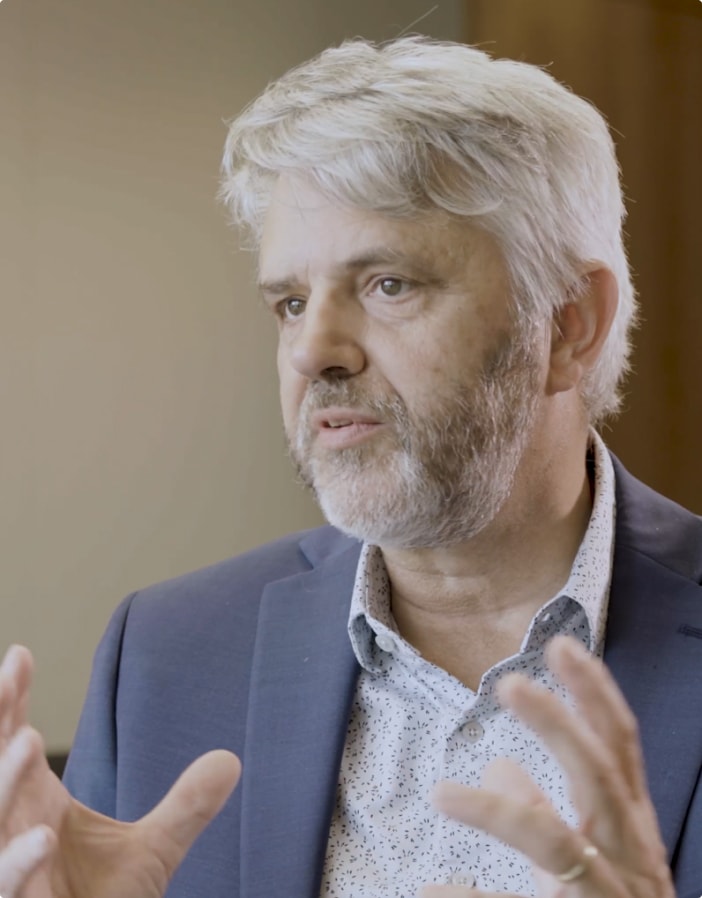
Don Luymes
Former Manager of Community Planning, City of Surrey
Interview
Q: Briefly explain the City of Surrey's vision for Central Downtown.
A: The city has long had a part to play in creating vitality and interest around this downtown. The way I'd characterise the vision is to create a 24-hour city. The civic district, home to City Hall, the Central Library and 3 Civic Plaza, created a real sense of confidence that energised the development community to take a look at opportunities for high density, residential environments to surround it. Right now there are a number of high density islands forming in the City Centre. They're starting to coalesce and grow together. And that presents interesting opportunities.
Q: Was there anything unique about Surrey’s planning construct?
A: There are lots of regional centres in Metro Vancouver, and each of them is unique. Certainly collaboration has been key. The city's been collaborating with partners like Simon Fraser University, Translink, Fraser Health, and many more. Surrey City Development Corporation provides the city with an opportunity to create collaborative development partnerships that otherwise would not be permitted under legislation.
Q: How do you think Central Downtown will shape the future of Surrey City Centre?
A: A Central Downtown is generally key to the city's future. There are some ingredients that the city is currently pursuing, and I think our council is on board with this as well. They’re currently articulating a vision for an entertainment district. I think that will create a more organic, more authentic kind of downtown experience.
Q: What role will the plaza play in city building?
A: The city's been able to create the setting for big public gatherings and events. Large festivals at Holland Park and smaller gatherings on the Plaza. It creates a real sense of place. It doesn't happen organically. The city. through its special events coordination and the Parks, Recreation, and Culture department, has worked tirelessly in that regard. But I think it's an investment that has really paid off. Future plans for the Plaza involve some interactive lights as part of the planning for an interactive arts museum.
Q: Looking forward, what's ahead for the City of Surrey?
A: Having a downtown that is a counterpoint to Vancouver. One that really has some of those people-friendly, interesting, and exciting places—that's my hope for the future of Surrey. Not just more density, but more interest, services, and experiences. More places to go, more things to do, more places to create.
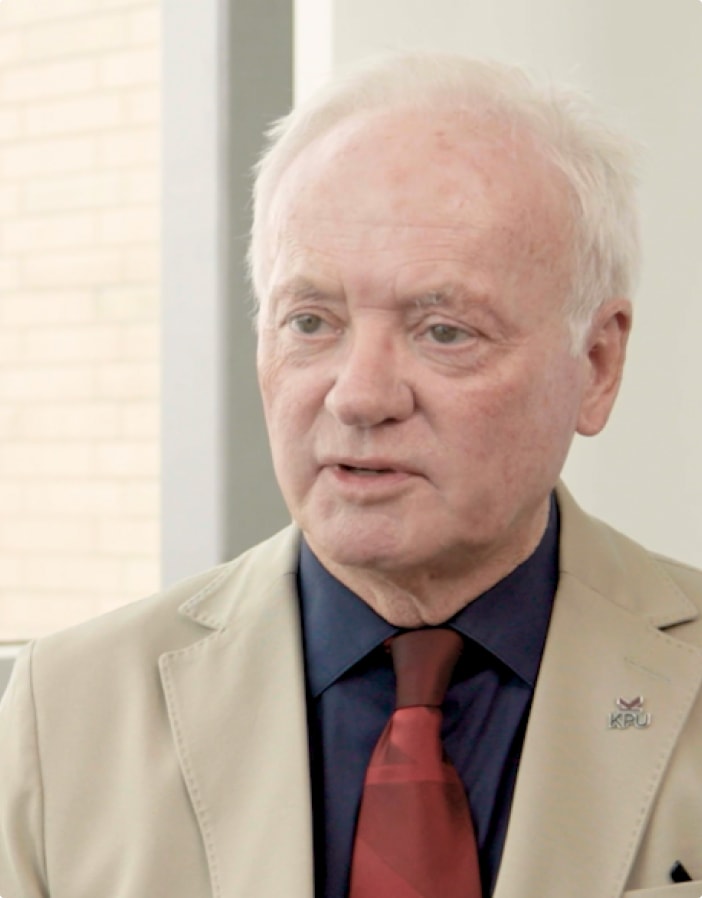
Dr. Alan Davies
President, Kwantlen Polytechnic University
Interview
Q: How does the inclusion of universities positively contribute to city building?
A: I'm not a city planner, but I am an educator, and I am a citizen, and I enjoy many of the attributes of cities. When I think about some of the great cities in the world, you'll notice that whether it's by design or by accident, universities are very prominent in the centre of London, for instance, and in the centre of Paris. Surrey has the opportunity, and it's taken the opportunity to have universities as part of the downtown planning, and it's been our privilege to be part of that.
Q: What was it about the campus opportunity at 3 Civic Plaza that attracted KPU?
A: A number of things came together. First of all, the new city hall was being built, which also has a lot of space for public events, which is great. SFU had already established themselves in Central Downtown. The library was new. Then the SkyTrain of course is right there, and it suggested to us that many more people could access KPU, not only from Surrey but also from anyone who can connect through the SkyTrain routes.It seemed like a perfect opportunity for KPU to be part of creating the university environment that we now find in City Centre, particularly on the plaza.
Q: What was your vision for the campus?
A: It was guided by what happened to SFU when it went into Downtown Vancouver. We felt there was a great opportunity for KPU to be part of the emerging hub of learning in Surrey City Center. It's a way to not only educate future leaders, but to shape the future of the city.
Q: Why did you choose to locate business programs within that specific campus?
A: It made sense for post-graduate programs. Establishing the KPU campus within the heart of the Central Downtown means students have access to business and services that enhance their experience.
Q: What does Surrey’s Central Downtown look like in ten years?
A: Life is moving so fast isn’t it. When you look at Civic Plaza, and you look around, what’s happening around Civic Plaza is going to spread. There’s going to be more livable areas, more places for people to convene. We hope that it is a kind of a destination for people, to study, to play, to engage with each other, to enrich themselves in terms of the culture that's available. That's what I can see, extrapolating what's already happened and just making it bigger and better.
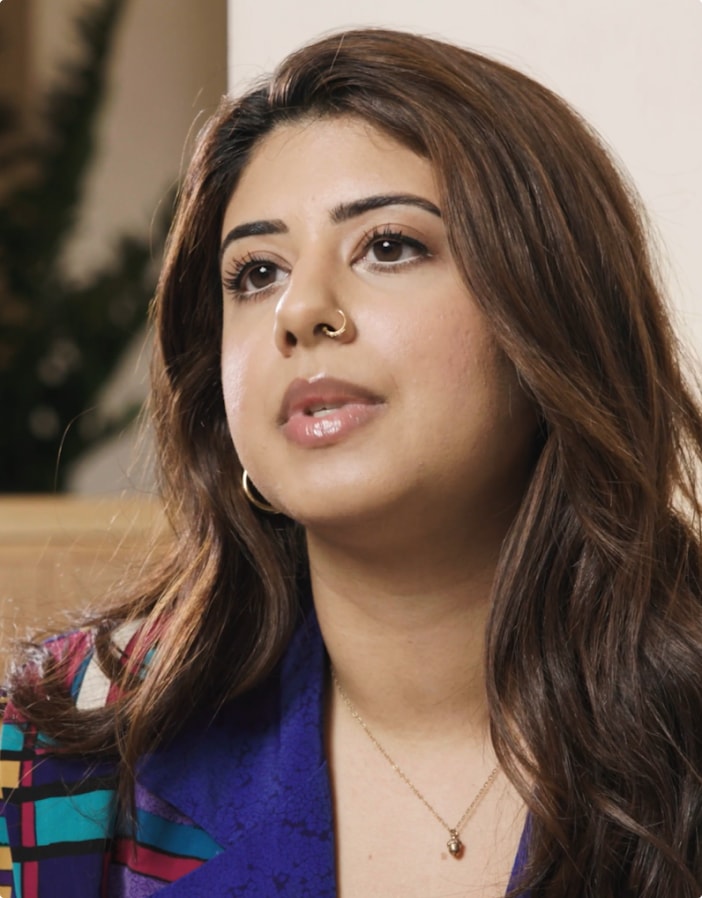
Harpo Mander
Executive Director, 5X Festival
Interview
I'm Harpo, the executive director of Five X, which is an arts organisation for young South Asians aged 16 to 35. A lot of my work is centred around telling the story of the arts and culture space in Surrey, particularly as it relates to the South Asian community.
Q: What makes Surrey so special and unique?
A: There's so many things, I don't even know where to start. I will say that there's so much talent here. There is an abundance of creativity and cultural production. The cultural production part is really interesting to me because a lot of the culture that emerges from Surrey is very nuanced.
Q: How would you describe the culture today?
A: I would say in the last decade, especially in the last five years, there's been such a shift. The growth and the trajectory that’s happened in a very short span of time is creating a new wave of culture, not just diversity, but a unique cultural identity.
Q: What are some key factors driving this transformation?
A: Speaking from the vantage point of arts and culture, Surrey is such a hot destination for a lot of people who are immigrating to Canada. They can access a network that is embedded in the music industry in a way that's very different from other pockets in North America. Artists can write songs and produce music in a studio, and many of those people now have billions of streams on Spotify. They've played at Coachella. They’re playing at the Junos. They sell out arenas and stadiums. That only came into fruition because of their relationship with Surrey.
Q: What role do you see investment playing to foster Surrey's cultural growth?
A: I think investment in infrastructure is so incredibly crucial to sustain the longevity of the culture in this community. Otherwise, we'll start losing people. Housing, education, and jobs really allow people to stay here.
Q: Looking ahead. What do you see for Surrey's cultural future?
A: What I see for Surrey's cultural future is more of this tenacity, this boldness. I think that a lot of people are going to want to be here, especially Central Downtown, because of the innovative culture, because it's convenient, and it aligns with their lifestyle.
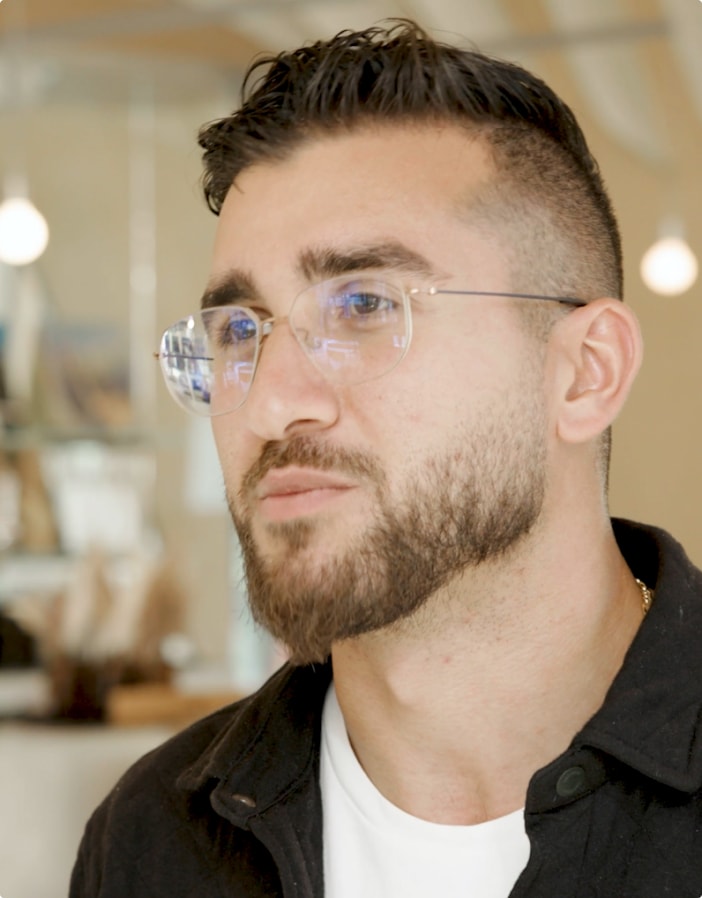
Jess Reno
CEO & Founder, Nemesis Coffee
Interview
I'm Jess Reno, one of the Co-founders and CEO of Nemesis. I started the company back in 2017 when we opened our doors on Valentine's Day. Our icon is an inverted heart that was just serendipitous. It was not intentional, but it all worked out for the best.
Q: Why did you decide to expand into Surrey City Centre?
A: To see all the education going in, to see all these exciting new developments and the architecture. It's very aligned with who we are and things that we love, and we've always wanted to be here. When this opportunity came, we had to jump on it. I think it’s one of all the most unique centres in Greater Vancouver.
Q: How did this collaboration with Marcon come together?
A: The more that we got to know the people at Marcon the more we came to appreciate them. We've fostered a great relationship and I think that only could materialise because our values are so aligned. We're servicing a piece of a product, as a whole, that they really care about. love that we have a counterpart that cares about those things. So it was a done deal.
Q: What will Nemesis bring to elevate the community and culture in Surrey?
A: Surrey’s got a whole bunch of energy, a lot of beautiful culture, a lot of really great people. We do coffee and food and do it with so much intention. It's how we serve it. It's the music that we play and the communities that we build around our spaces. Really all the elements that make us who we are.
Q: What excites you most about the new Surrey location?
A: We tend to see a lot of people through our doors, that are from Surrey, and we get an opportunity to connect with them.We’re really excited that we get the opportunity to bring great coffee and warm hospitality and music and arts — to be a hub for that in a place that seems to be underserved.


